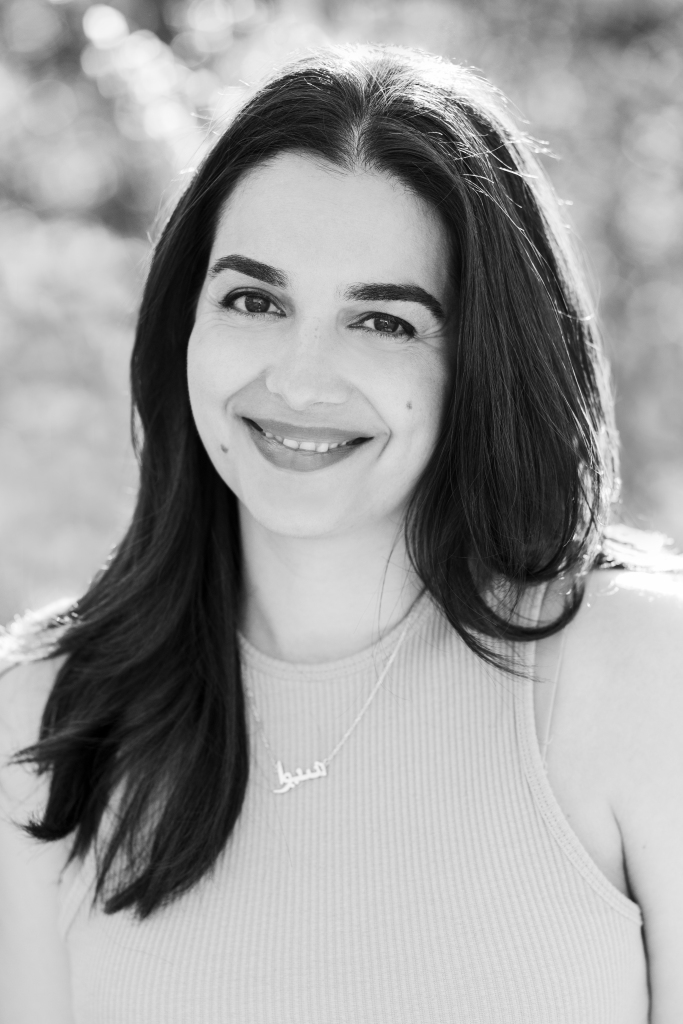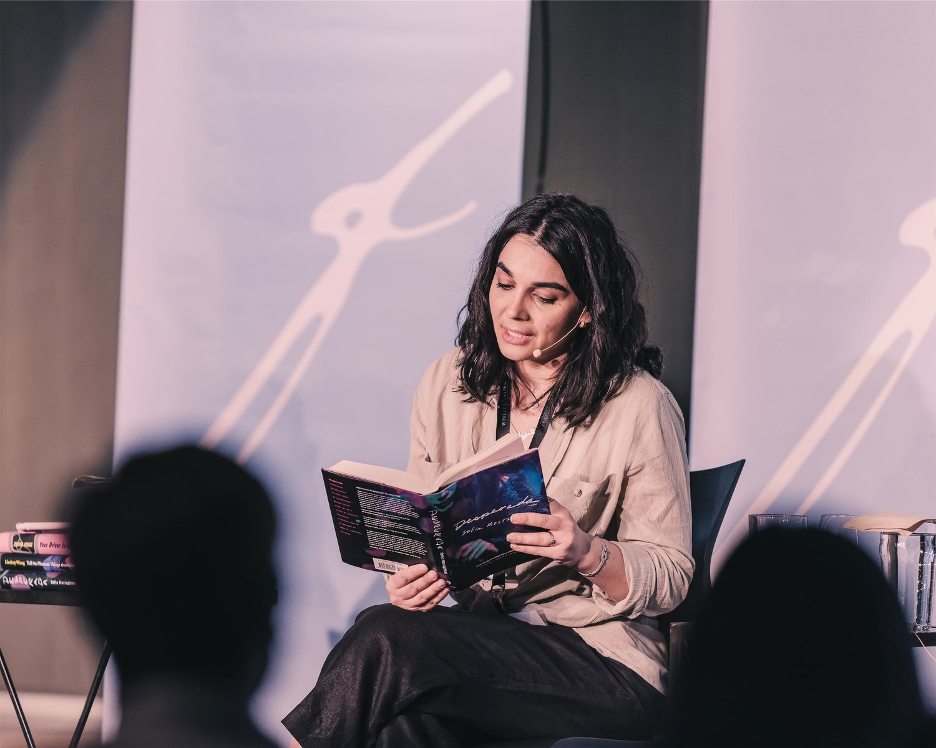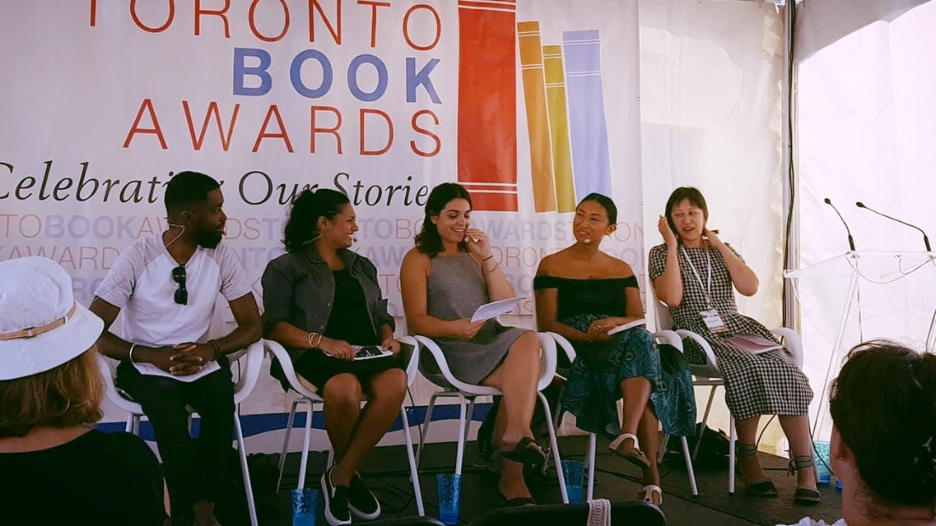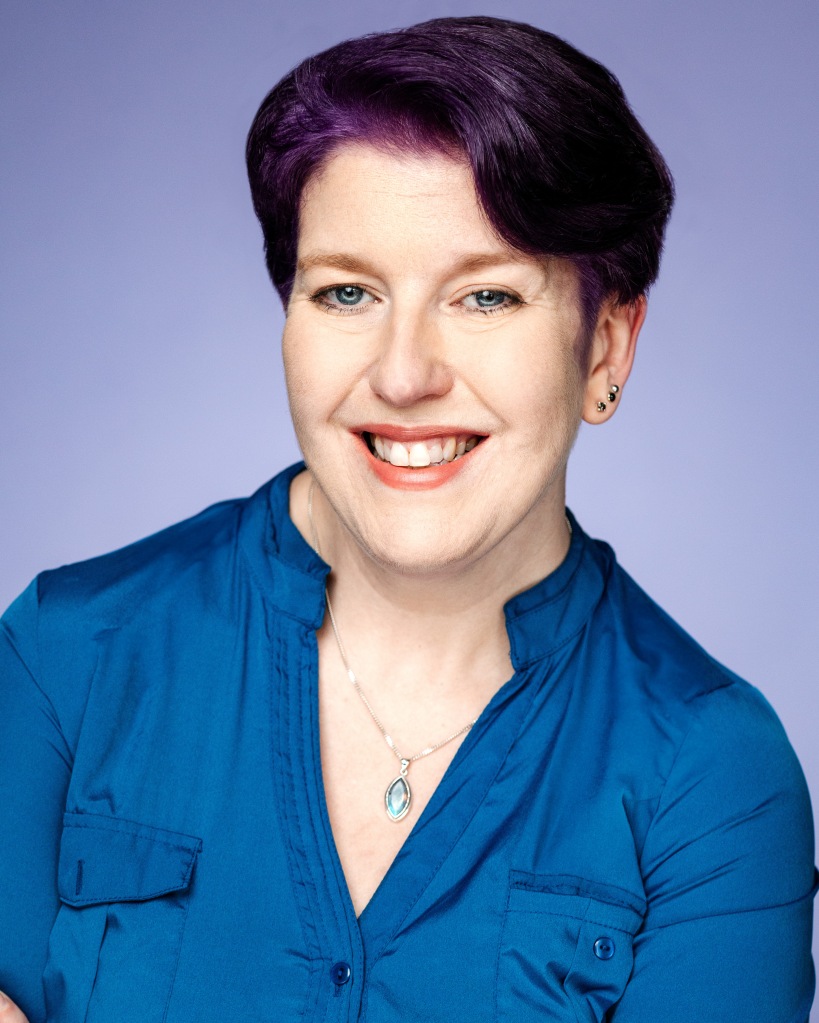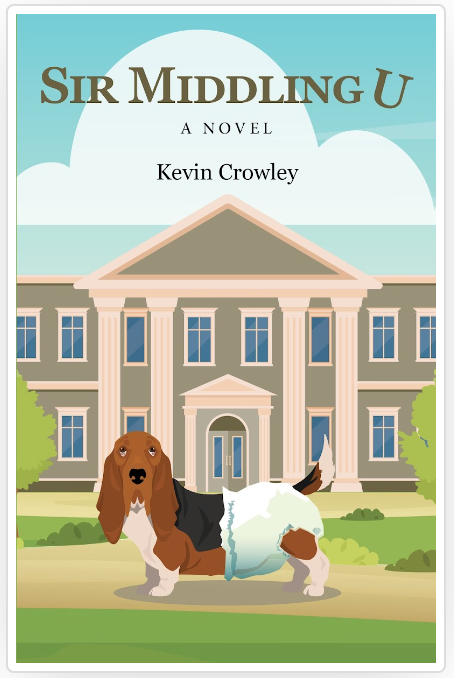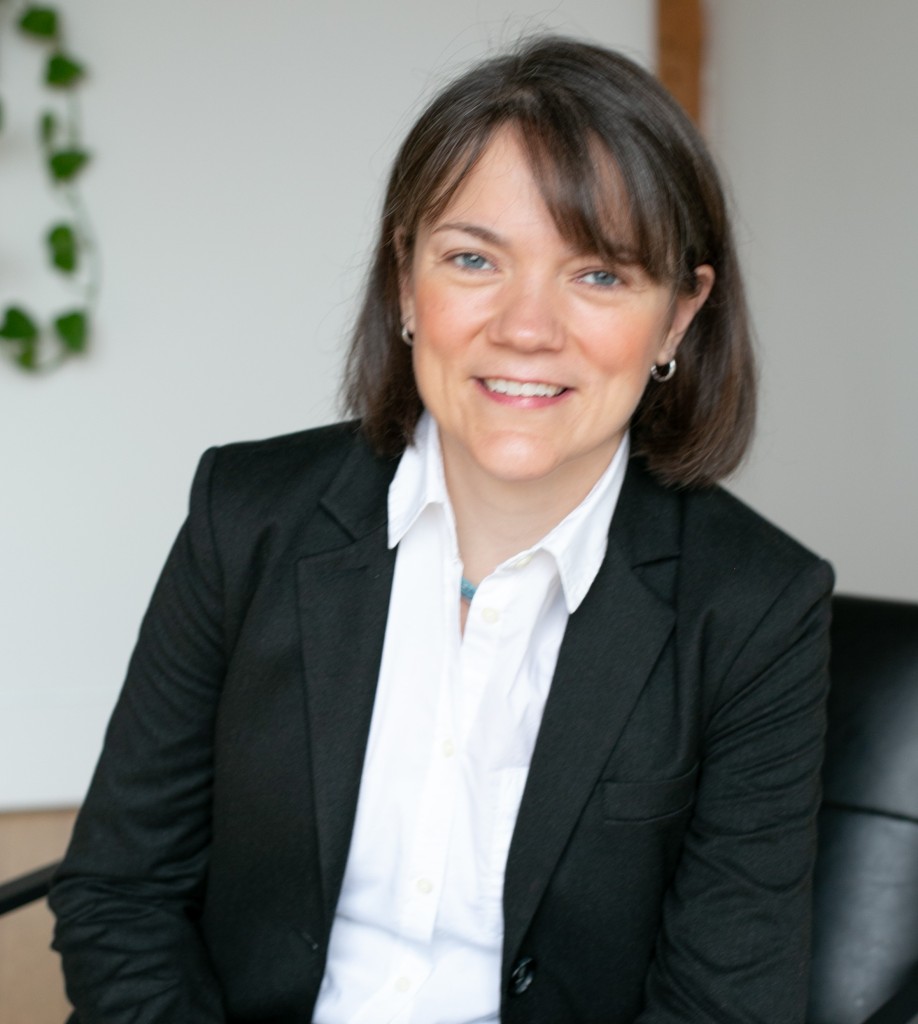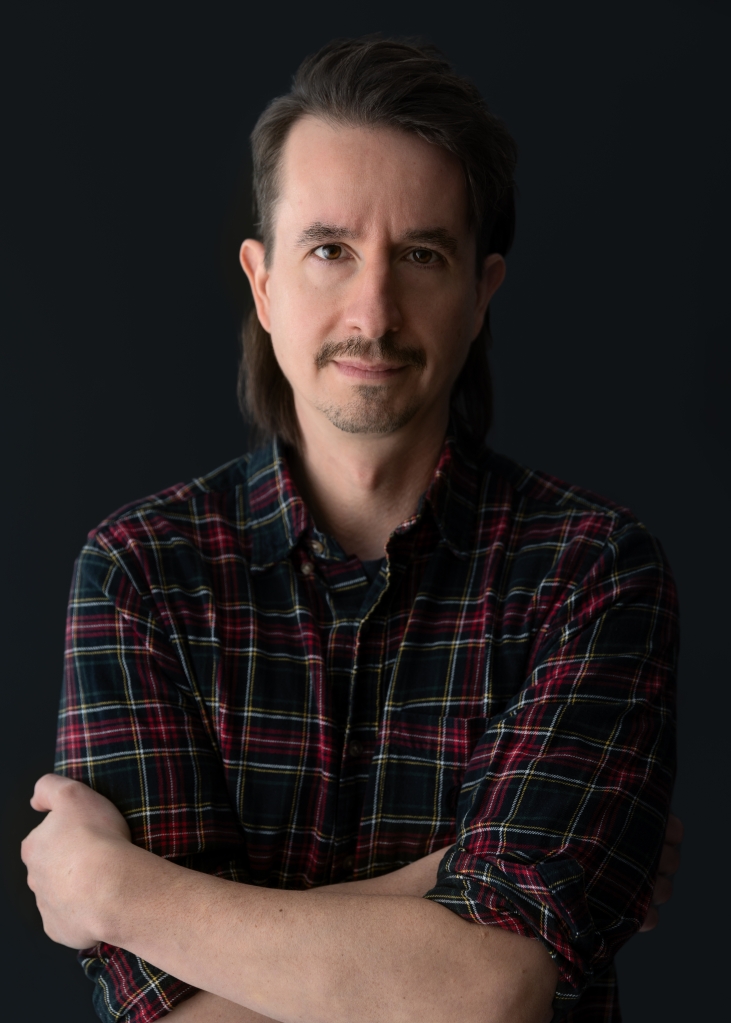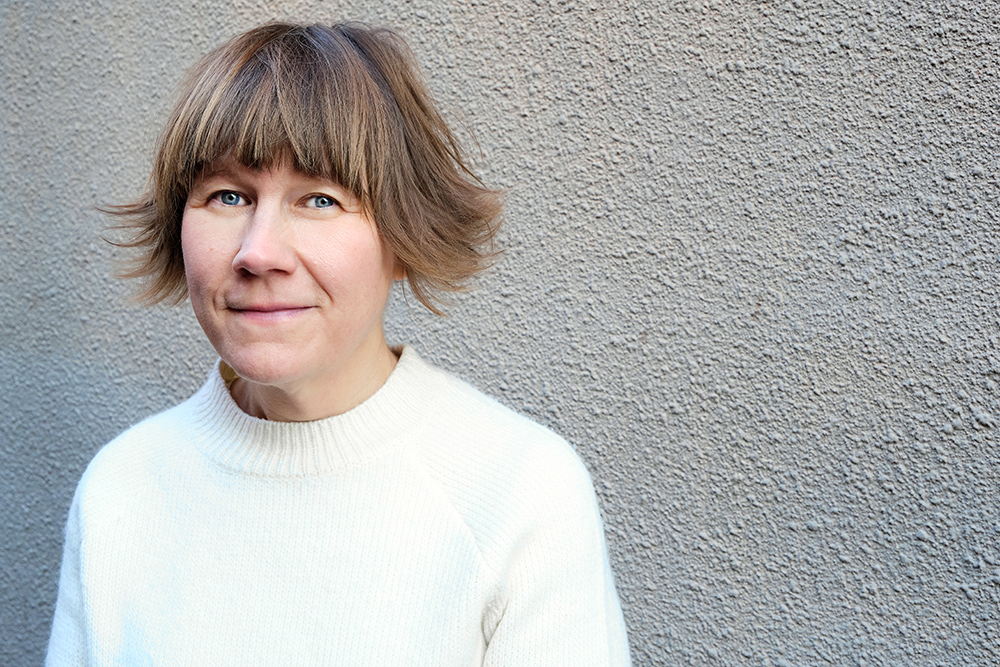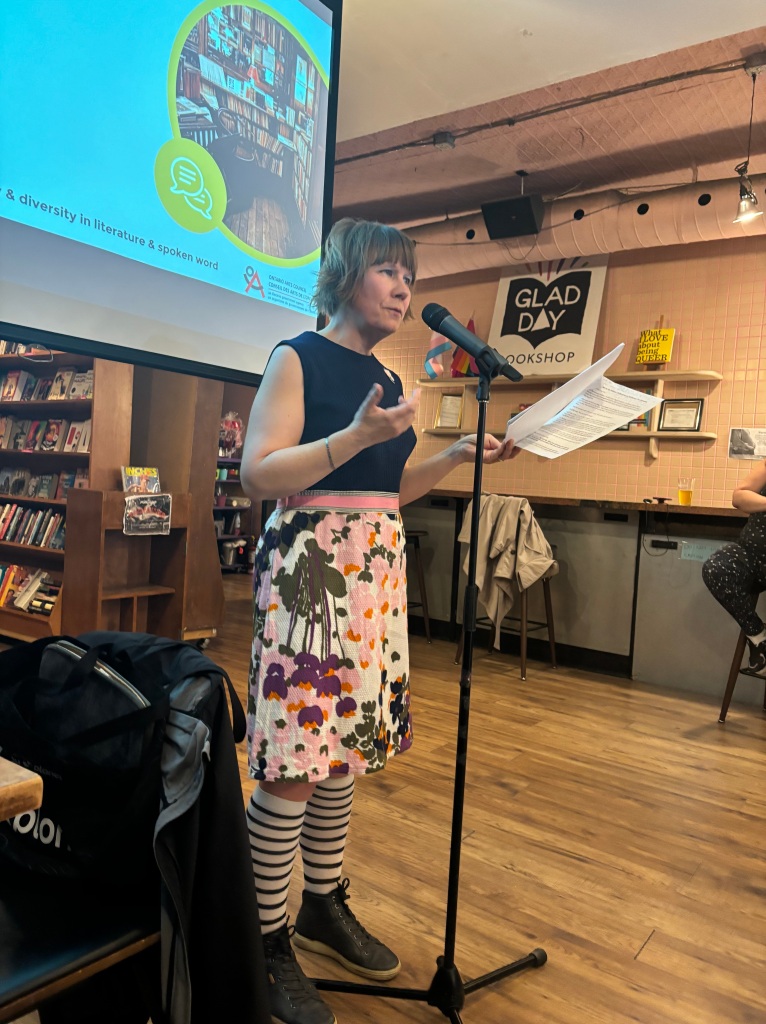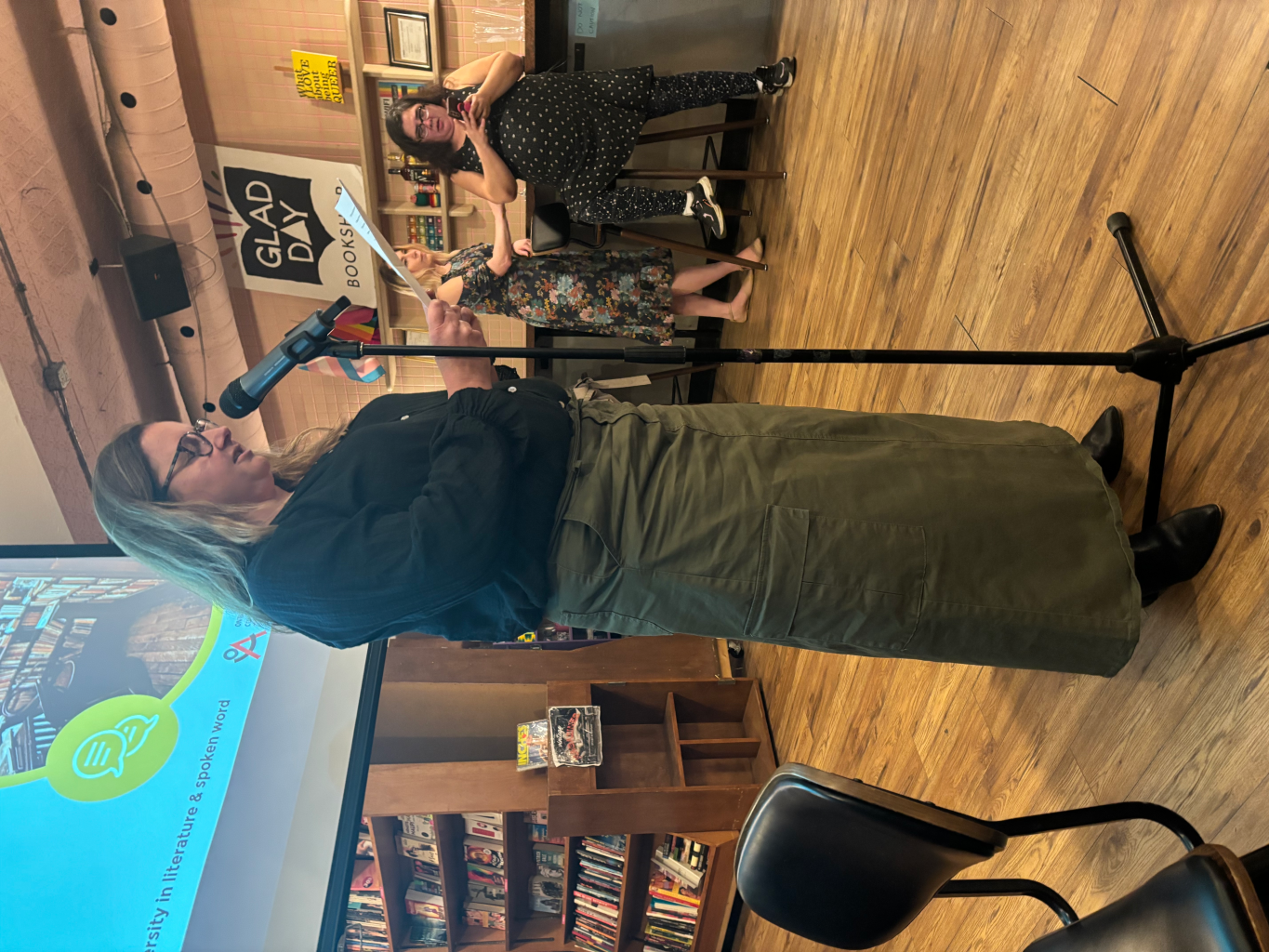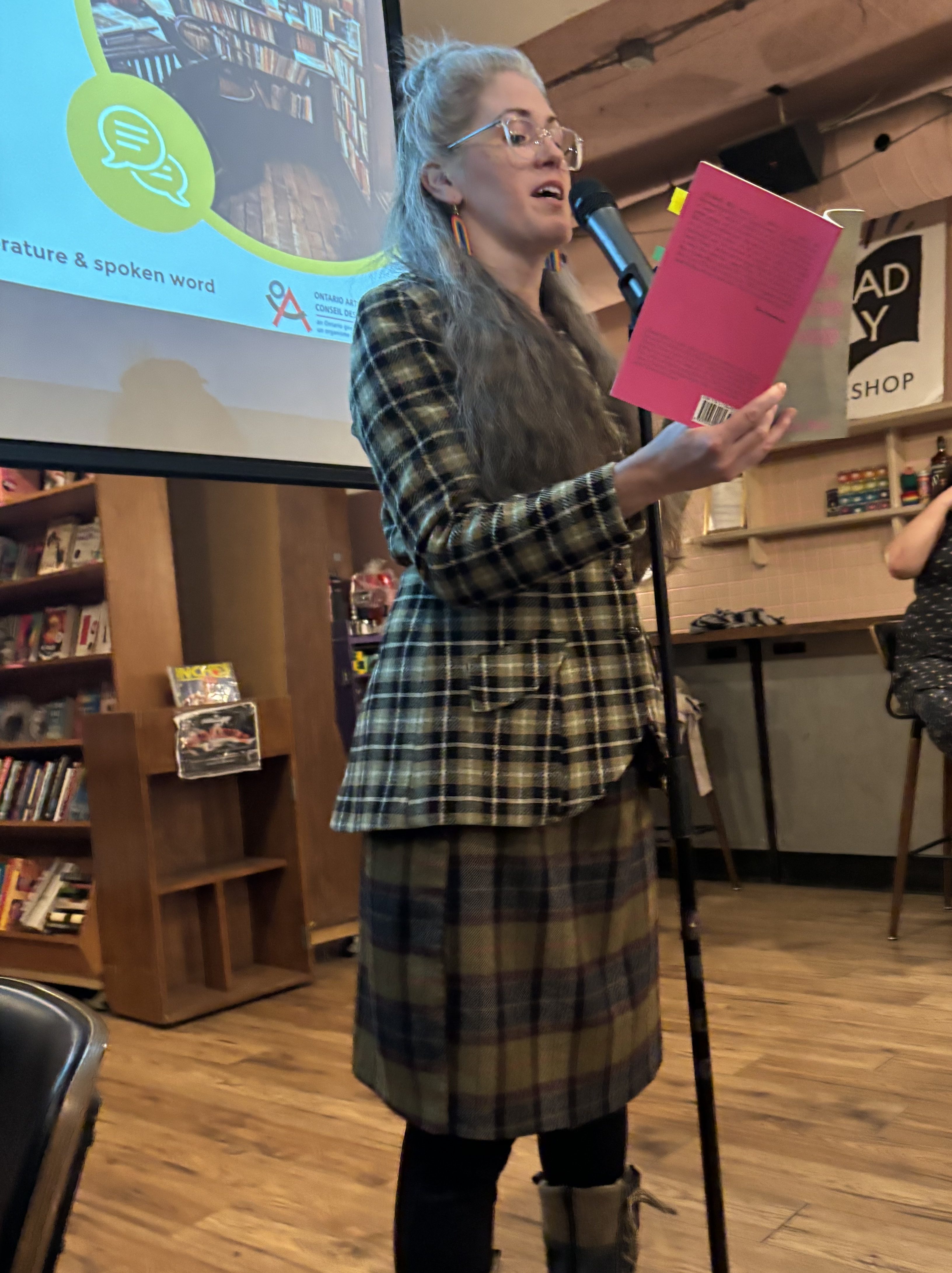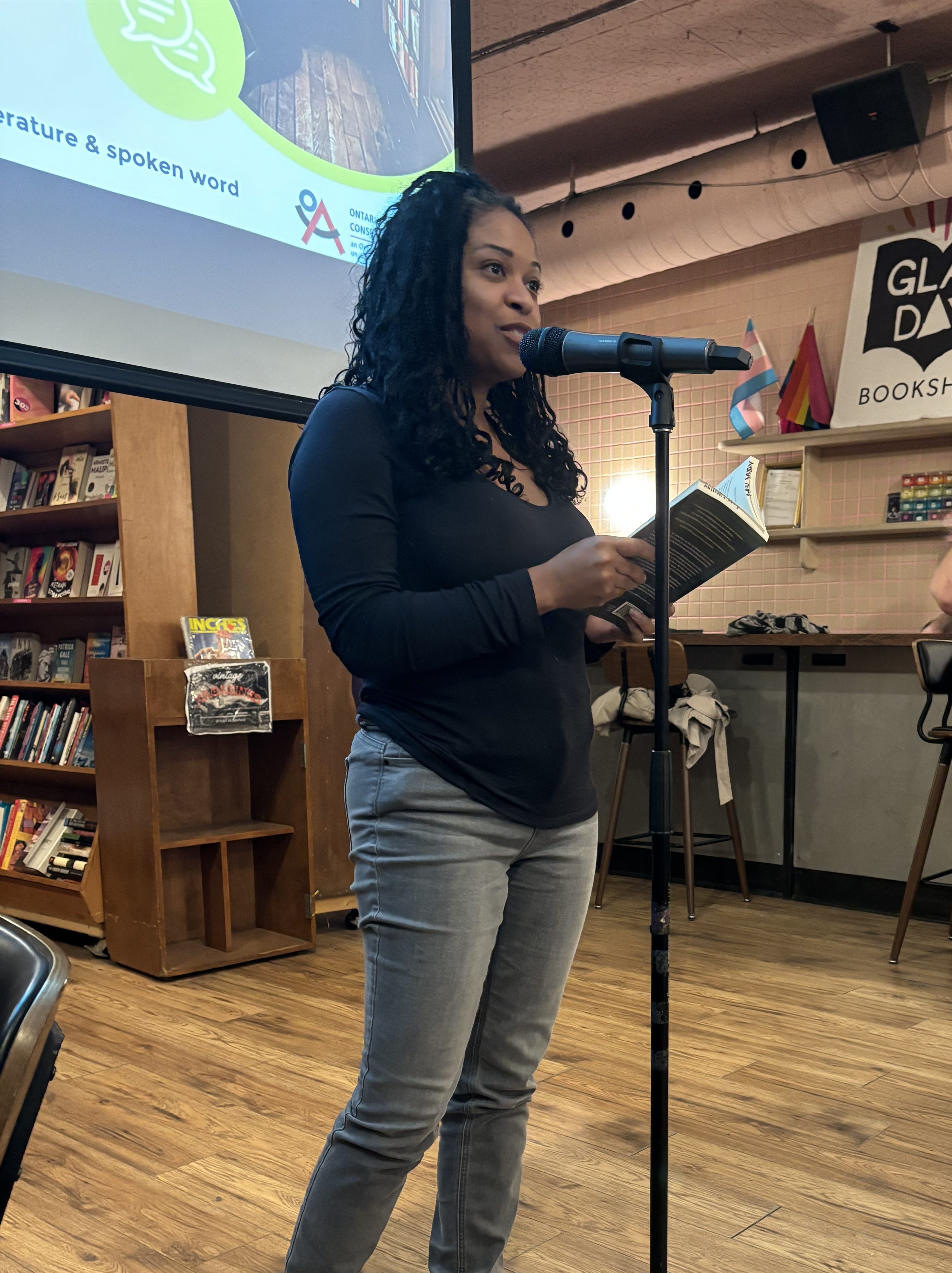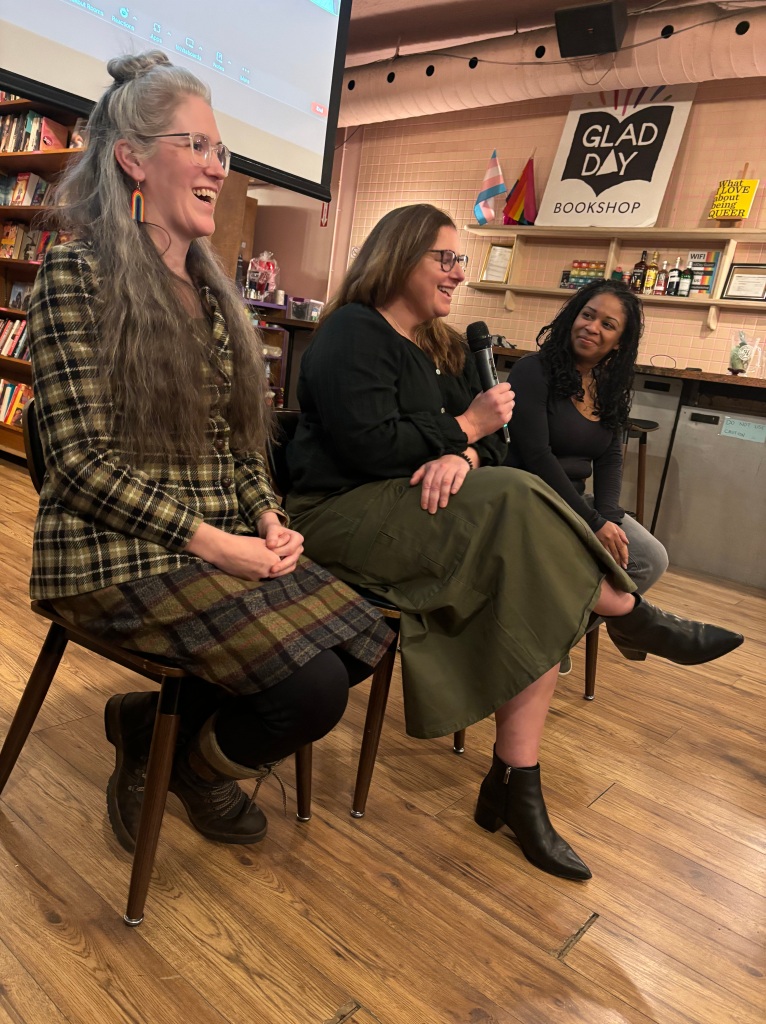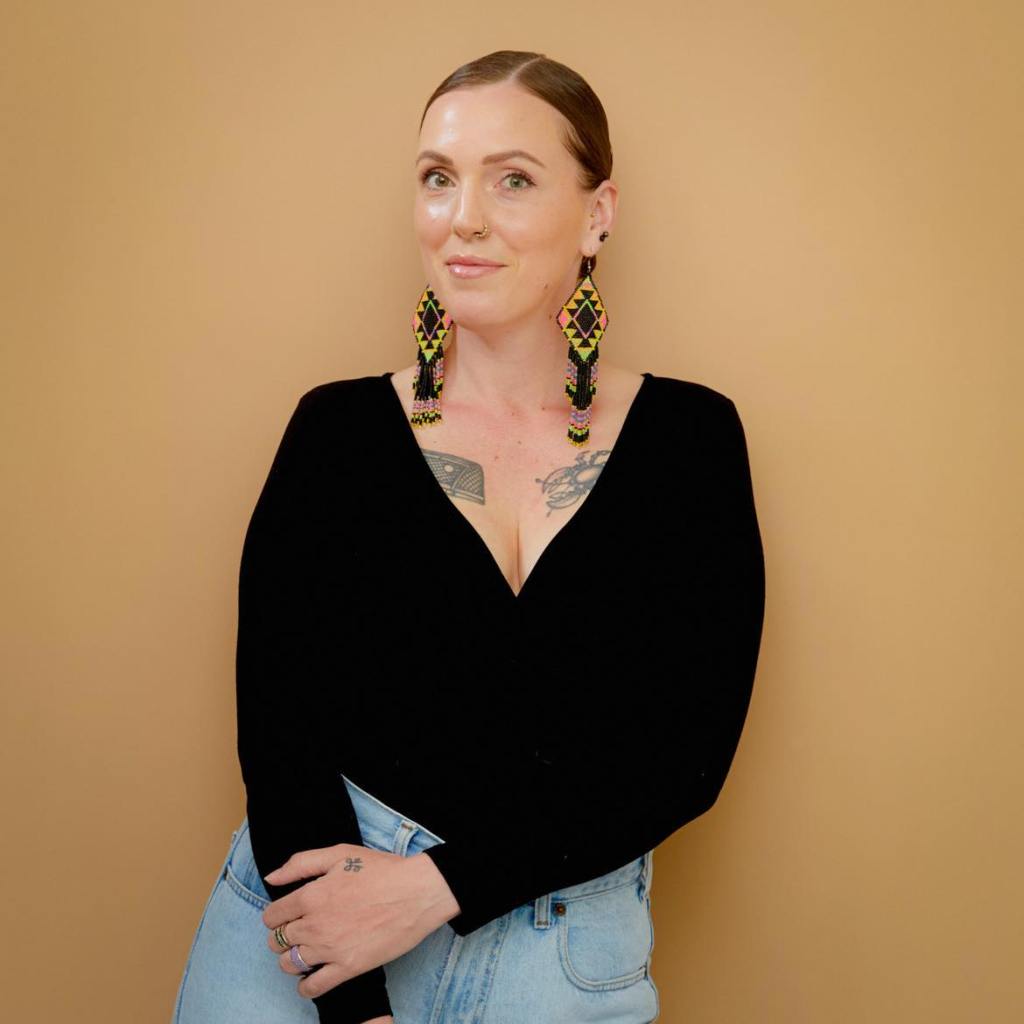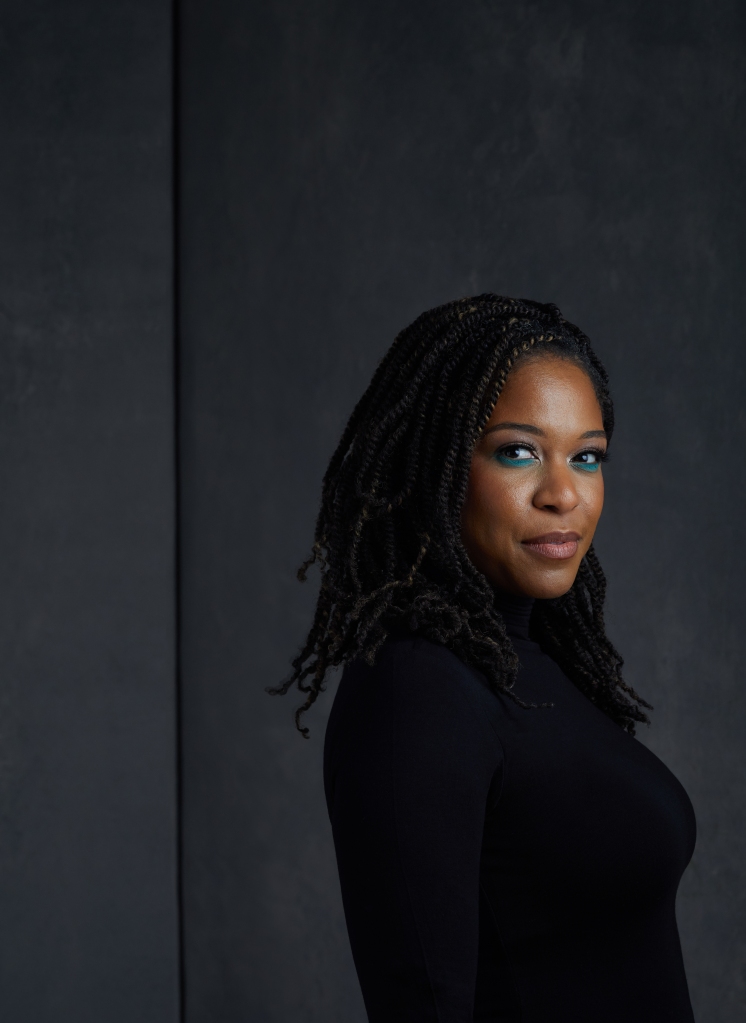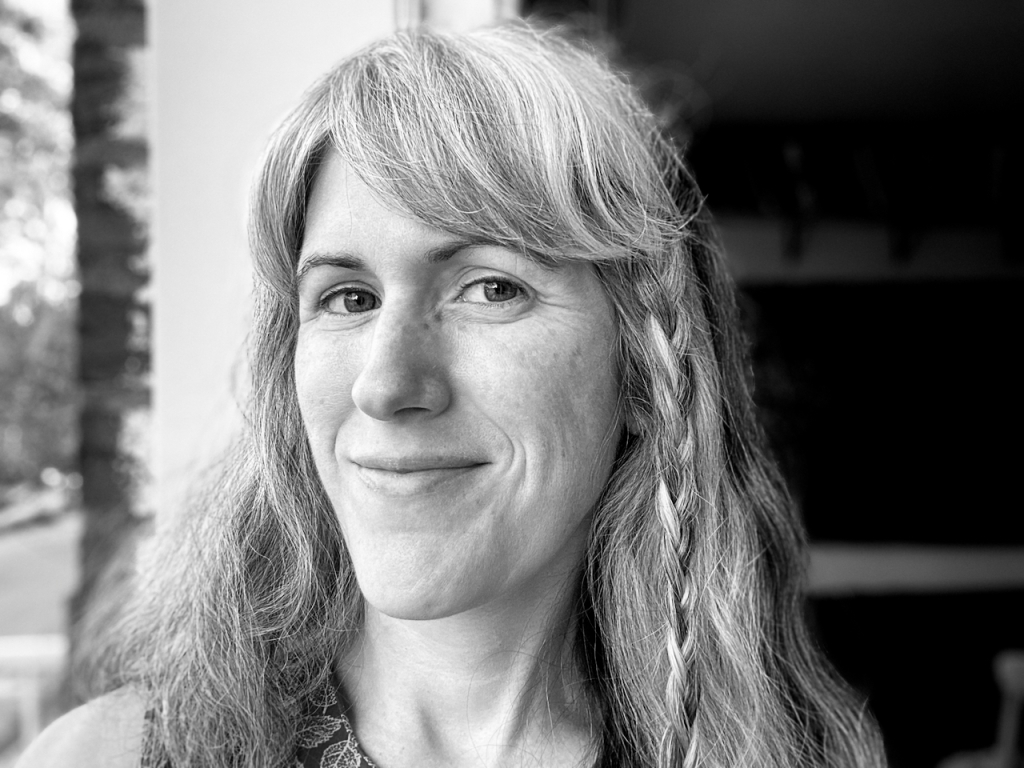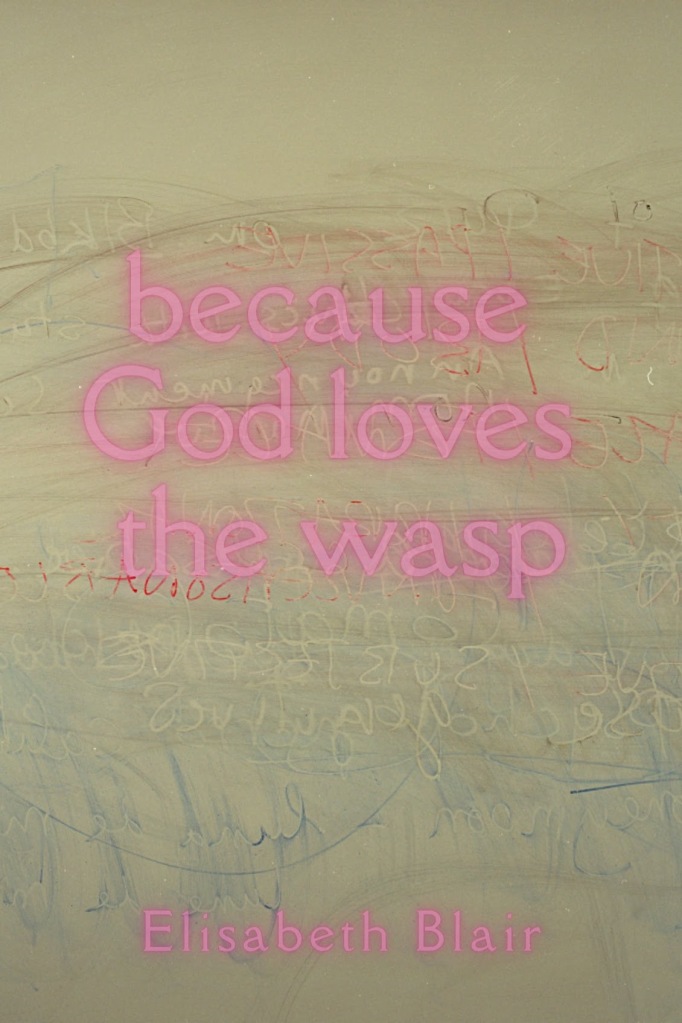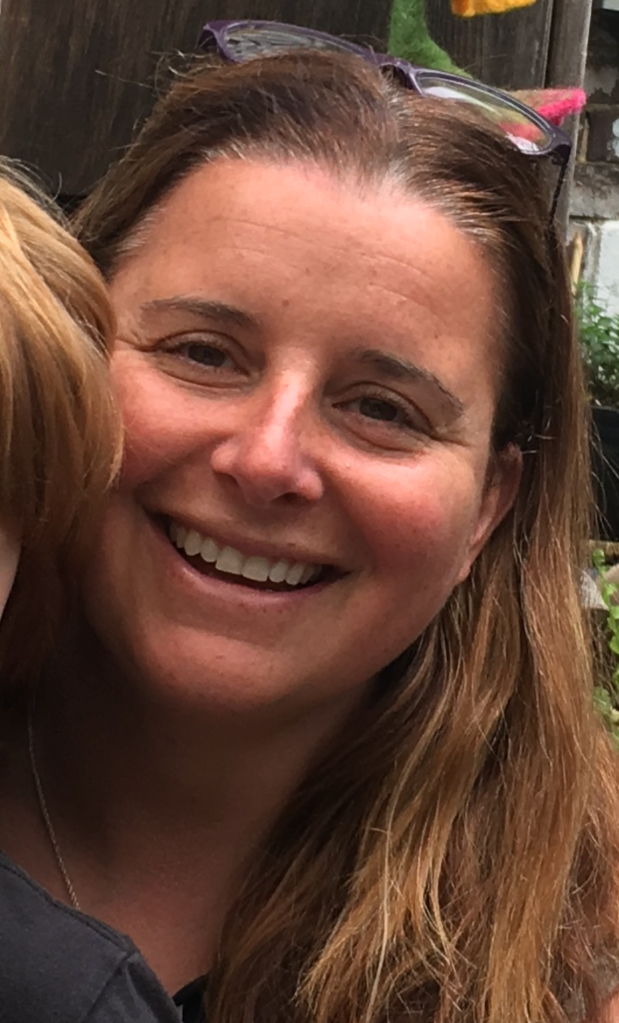Sofia Mostaghimi is an Iranian and French-Canadian writer based out of Tkaronto/Toronto. She likes to write about places, spaces, and the identities that mark them and are marked by them. Desperada is her debut novel.
The Storyteller and the Writer
By Sofia Mostaghimi
I love readings. I love them because they are communal, because they are oral, because I believe they draw their power from an ancestral well of how we told our first stories. I believe a well-told story shared around a fire to have been our first art form. Certainly, we all know some gifted someone, not necessarily a writer (often they aren’t writers, at all), who can turn even the simplest events into an adventure, shooting into improbable tangents as their hands, their expressions gyrate, amplifying each point until amazedly they’ve circled back to their original, essential point, and we are filled with emotion, glad for the pleasure of having listened. A good storyteller is like that, surprising and absorbing. So should be a good writer, the difference being, of course, that the writer writes and that writing is not the same as speaking.
What I love about writing is the white-hot passion and cold, blue discipline it requires of me. I love the thoughtfulness of the practice, the solitude and sacrifice it asks of me. I love the permanence of words on the page. I love the ease of syllables becoming rhythm and meaning, of wielding paragraphs into the shape of a story. As a reader, I love how words on the page become my thoughts when I am reading, which tells me, joyfully, faithfully, that human connection is possible across vast distances and time periods. In other words, so much about what I love about the written word can feel contrary to the energetic, spontaneity of the storyteller I’ve just described.
During the pandemic, readings ceased. I had all the solitude and time I needed to write—and I did write. I wrote the final draft of my novel, Desperada. It felt good to write the book, even if the subject matter was hard and sad, and required me to be tender, and harsh, in turn. The novel tells the story of Kora, a young woman reeling from the death of her little sister, for which she feels responsible. Unexpectedly, she embarks on a journey across six cities searching for obliteration, instead encountering moments of unexpected beauty and connection that she must choose to embrace or reject at the risk of losing herself.
Something unexpected happened while I wrote Desperada. A voice emerged inside my head, which was not mine at all, but hers, Kora’s. As I wrote, her voice grew loud and clear, much more confident than my own because by contrast, my voice sought to intellectualize her and her story, which naturally, her voice resisted. It was as if I had two parts vying to tell Desperada: the storyteller and the writer.
Dichotomies are only sometimes useful. I’ve made some here, between the oral and the written, the storyteller and the writer, though this isn’t the whole story. What interests me is not the separation between these ideas but what draws them together. The written word, and more specifically the novel has, by scholars, often been touted as superior to the seeming ephemerality of oral storytelling, a belief certainly rooted in colonial-imperialist modes of thinking with which I don’t agree.
I love readings precisely because they remind us of the oral and communal nature of words and stories. It jars us writers out of a solitary practice and reminds us why writing (and all art) is vital to life. Through the arts, we can share feelings and question ideas about what it means to be human. At readings, we can do this together. Post-pandemic, I’ve been so glad to see readings return and I am so grateful to those dedicated people who organize them. I think there can be no good writing, no good story, without the ear. The authority of any good piece of writing derives from its orality. There should be a feeling that we’ve returned to sit by the primordial fire around which we first connected; we should be warmed by it.

